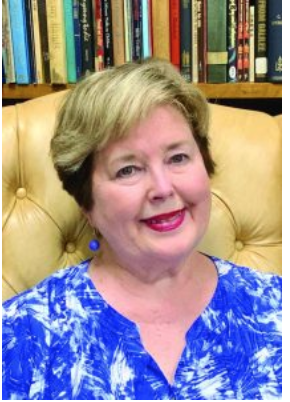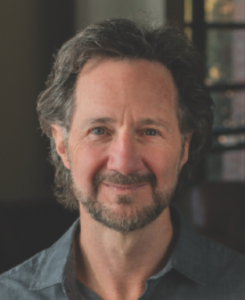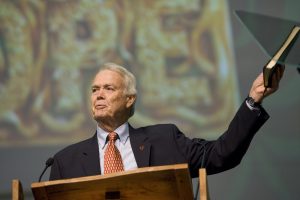
by Good News | Sep 20, 2021 | Magazine, Magazine Articles, September/October 2021
 By B.J. Funk –
By B.J. Funk –
Maybe some of you remember the Andy Griffith show, and if so, you likely remember Otis. Otis had a drinking problem, and whenever he had too much, he came to the Sheriff’s office, went into one of the two cells and slept it off. In fact, he came so often that he knew where the key was. Andy allowed Otis to unlock one of the cells anytime he needed and go on in, even if Andy wasn’t there.
One day, a letter came to the sheriff’s office addressed to Otis. Barney was incredulous! “Andy, why is Otis’ sister-in-law writing him here? This is not Otis’ address!” The two officers woke Otis and questioned him. The letter stated that she and his brother were coming to Mayberry to visit Otis and his wife – that very day!
Otis confessed. One time, when Andy and Barney were out of the office, Otis took a sheet of paper from Andy’s desk and wrote his brother. In the letter, Otis led his brother to think that Otis was now a deputy, working for Sheriff Taylor. Barney was furious! But Andy listened as Otis explained his reasoning.
Otis answered sheepishly, “I know it wasn’t right for me to do that, Andy, but I don’t know, I’ve always been the black sheep of the family, and it just felt good to change colors.” Otis’ answer seemed to melt the heart of the kind-hearted sheriff.
Maybe you’ve felt like the black sheep before. At home. At your work or place of business. Everyone else seems to have their act altogether, with their bright, happy colors dancing a joyous jig of self-confidence. Being known as the black sheep places a barbed wire fence around your every effort, immediately canceling any good in you as its piercingly sharp edges cut into your skin.
It’s no fun to live under the heavy dark cloak of sin. Or rejection. Or hidden pain. Or low self-confidence. But, how do we change our colors?
Andy decided to make Otis a deputy for the day – for just one day – the day Otis’ brother would be there. Barney didn’t think Otis should be a deputy, and he came right back at Andy with his strong words of judgment. “Now Andy, you shouldn’t do that!” Barney gave his reasons why Otis should not be made a deputy. He said, “Otis is careless, unreliable, and irresponsible!” To which Andy smiles and responds, “I’m gonna make him a deputy.”
Hear the whine in Barney’s voice. “You’re making the town drunk into a deputy!” In this particular episode, Barney represents the law and Andy represents grace.
In a stern warning about the dangerous way they are currently living, James makes this curious, seemingly out-of-place statement about God: “He gives more grace” (James 4:6). Romans puts an exclamation mark on this thought with “… but where sin increased, grace abounded all the more” (Romans 5:20).
That’s such a strong statement that we want to question if those lines even belong in the Bible. Could it really be true that the God who created you, loved you, and redeemed you will actually measure out his grace gifts to you in proportion to your sins? The more you sin, the more grace he gives? Unbelievable. Only a God like ours.
Listen to Satan’s strong words about your life and mine: He is self-centered, pleasure-seeking, self-indulgent, quarrelsome, spiritually unfaithful, and worldly. You can’t make him a Deputy! That’s us in our dark colors.
Then hear the voice of grace, softly whispering his belief in you: He may be all that, but I’m gonna make him a deputy anyway.
Climb into Otis’ jail cell with him. Wash his feet. Give him clean clothes. Paint his cell in stripes of soothing green and vibrant yellow. Trickle unconditional love in every empty space. Examine Chrysalis Otis as he pushes out the old, spreads his wings, and flies, brilliant splashes of red and purple dancing on his wings.
Watch the Barneys of our world standing on an exalted platform, looking down their noses with disbelief that anything so tainted could become anything so beautiful. But it can. It does. It did. Otis changed colors. You can too.
BJ. Funk is Good News’ long-time devotional columnist and author of It’s A Good Day for Grace.

by Good News | Sep 14, 2021 | Magazine, Magazine Articles, September/October 2021
 By Max Wilkins –
By Max Wilkins –
As The United Methodist Church moves ever closer to the seemingly inevitable adoption of the Protocol for separation and the establishment of the Global Methodist Church (GMC), those of us who remain committed to traditional understandings and expressions of Methodism owe a huge debt of gratitude to the international members of United Methodism outside the United States, particularly in Africa and Asia.
Indeed, were it not for the faithful witness of United Methodist General Conference delegates from what some analysts refer to as the Global South, the UM Church would have long since slid deeper into decline. Yet these vital, traditional, biblically sound Methodist communities did not emerge spontaneously. They are the fruit of thousands of faithful Methodist missionaries of the last 150 years who diligently labored to bring the Christian faith and a Wesleyan witness to their lands.
The missionary movement in Africa has been the focus of great criticism over the last several decades. And much of that criticism is well deserved. The deep ties to colonialism and colonialist practices were both regrettable and deplorable. The melding of the Golden Rule into the reality that “the one who owns the gold makes the rules” was always a perversion of the gospel message and an abuse of power. And many mistakes were made with the best of intentions by men and women who were ill-trained and ill-equipped for cross-cultural work, and often left to their own devices to figure it all out.
While it is important to acknowledge this situation, and to recognize that most of these issues have been successfully addressed in positive ways in the last several decades, it would be an injustice to the sacrifice and dedication of thousands of hard-working sincere missionaries to overlook the value of the work and the fruit of their labors.
The growth of the Christian faith in Africa since 1900 has been nothing short of miraculous. Never before in the 2000-year history of the Church have we witnessed an expansion of this magnitude. In 1900 there were fewer than 9 million Christians on the entire continent of Africa. Methodists on the continent numbered in the thousands. In 2020 the numbers are astounding.
The most recent statistics of the World Methodist Council report the number of Africans professing membership in Methodist movements to be approaching 15 million. Much of that growth is in independent Methodist churches on the continent. For instance, the Methodist Church of Ghana has grown between 40,000 and 50,000 new believers every year for the last decade. Ghana has a population almost equivalent to that of Texas. While it is often said that everything is bigger in Texas, when it comes to explosive church growth, Ghana outshines the Lone Star State.
The growth of United Methodist movements on the continent has been equally impressive. Official statistics show the UM Church in Africa is 5.7 million believers. That amazing growth has taken place alongside the decades long decline in UM Church membership in the United States. Most importantly these UM Church members in continental Africa are almost entirely traditionalist, orthodox, and biblically based in their theology and practice. And much of the leadership of these churches will readily acknowledge that both the growth and the theological integrity of the church in Africa is directly related to the witness and the legacy of those early Methodist missionaries.
Having acknowledged all of that, it is also important to understand that the world has changed dramatically, and the mission has changed along with it. We have moved inexorably over the last three or four decades from a “west to the rest” concept of missions to a “from everywhere to everywhere” practice.
Increasingly the Global South is becoming the heartbeat of mission sending. “The West” has become one of the largest missionary receiving areas of the world. This much-needed change has not been enthusiastically embraced by all corners of the church, however. From the insulting and dismissive comments directed at African General Conference delegates by North American leaders, to the continuing efforts to minimize Global South theological and ecclesiastical voices, and even the growing manipulation of the financial advantages of the U.S. and European churches as a means of coercing cooperation with progressive agendas, there continue to be challenges for some corners of our church to take these Global South leaders seriously. Some correctives are needed. Thankfully, I believe the emerging Global Methodist Church will provide a couple of these correctives.
First, the new denomination will be, from day one, a majority world dominated denomination. And that is by design. It is a near certainty that a substantial percentage of the Global South churches that make up the UM Church currently will ultimately unite with the new Methodist denomination. There are also a number of independent Methodist movements in Latin America and Africa who have begun conversation about aligning with the GMC.
From the moment of its founding conference, the GMC may have far more members from the Global South than from the U.S. And even though I fully expect the GMC to grow rapidly in the U.S. once it is launched, there is no reason to assume that the geometric growth of the church in the Global South will slow any time soon. Thus, it is both inevitable and exciting to consider that the strong voices of teaching and leadership that are helping the church to grow faithfully in the Global South will become leading and respected voices in the new denomination. That will be a huge treasure to the GMC.
Second, I have believed for some time that the time has come for those of us who are leaders in the North American church to lower our voices, at least a bit, and to begin to elevate and promote the voices of Global South church leaders. It is important for books and resources from these women and men to be available throughout the church. Our conferences should regularly feature preaching, teaching, and leadership from these women and men.
I remain grateful that leadership from both the Wesleyan Covenant Association and the emerging GMC have been intentional about seeking and giving voice and decision-making power to many of these very voices. In much the same way that the leadership of African bishops was critical to those who fled the Episcopal Church to form the Anglican Church in North America and other Anglican expressions, it will be essential to those forming the GMC to look to our Global South sisters and brothers for wisdom, counsel, and leadership.
For years, Good News magazine has utilized TMS Global to write its missions column in each issue. We are grateful to have had this opportunity to share our witness and our voice. But we are also extremely excited to announce that with the full enthusiastic blessings of Good News’ editorial leadership we will be using our column in each issue for the foreseeable future to platform some important voices from the Global South.
As we race toward a new day for Methodism, both in the U.S. and globally, we believe that we will all be blessed by the individual and collective wisdom they will bring. I hope you will all look forward to these contributions. May the Lord continue to bless the growth of the Church in Africa, in Latin America, and in Asia. And may that sweet revival spirit make its way back here to the U.S. Lord, hear our prayer.
Max Wilkins is the president and CEO of TMS Global. He is the author of Focusing My Gaze: Beholding the Upward, Inward, Outward Mission of Jesus. To learn more, visit seedbed.com/focusingmygaze and TMS-global.org.

by Good News | Sep 7, 2021 | In the News, Magazine, Magazine Articles, September/October 2021

The Rev. Rob Renfroe, president of Good News
By Rob Renfroe –
Not long ago I spoke via Zoom to the Zimbabwe General Conference delegation. They have asked several persons representing all theological views to talk to them about the future of the United Methodist Church. The man who spoke before I did would classify himself as a “centrist” with progressive leanings. He’s a genuinely good man and has been a good-faith partner in working for the separation that we desperately need. I respect him, his thinking, and his sincerity.
He was asked by one delegate, “What position will traditionalists hold if they do not join the Global Methodist Church but remain in the Post-Separation United Methodist Church (PSUMC)? How will they be treated?”
His answer was, “I cannot imagine a United Methodist Church without traditionalists being respected and put in places of leadership.”
That has been the line we’ve heard from most centrists and many progressives. Nothing will really change. There’s room in the big tent that is the United Methodist Church for all people and all opinions. There’s no real reason for people of good will to separate. And once the hard-core Bible traditionalists (the people that Good News represents) leave, the beliefs of reasonable traditionalists will be honored; and the PSUMC will be one happy, live-and-let-live family.
Again, I believe the man I described above and some others like him are sincere in their views. And I believe they are absolutely mistaken.
We have recently seen a rash of pastors removed from their pulpits by centrist/progressive bishops without consulting with the pastor or their churches – even though the Book of Discipline says they must consult. This has occurred in three different jurisdictions with three different bishops. Why? Because these pastors have made it clear they are traditionalists who support the coming Global Methodist Church.
Already, there have been several annual conferences where “centrist” and “progressive” bishops have removed traditionalist district superintendents and replaced them with others who share the bishop’s nontraditional beliefs. There is now no one close to these bishops who understands or represents traditionalists.
Many annual conferences have gone on record that they will disregard the Book of Discipline’s prohibitions of same-sex marriage and the ordination of practicing gay persons. They are presently ordaining practicing gay persons. Just recently a district in the Illinois Great Rivers Conference certified an openly gay person who performs in drag, Isaac Simmons, as a candidate for ministry. (Certification is the first step in a years-long process toward ordination.) Simmons recently preached at the church where he serves in Bloomington in his drag persona “Miss Penny Cost.” On a YouTube video Miss Penny Cost prays to Mary and refers to God as “Our Lover who art in heaven.” Drag Queen persona aside, a district committee in Illinois Great Rivers felt comfortable recommending for UM ministry a person whose theology cannot possibly be reconciled with authentic Wesleyanism.
Near the time of his crucifixion, Jesus said, “For if people do these things when the tree is green, what will happen when it is dry?” (Luke 23:31). It’s not an easy passage to understand, but the general meaning is that if people will do wrong when there is some kind of restraining influence present, what will they do when that presence is gone?
Up until this time, we traditionalists have been the restraint that has kept progressives from doing all they desire in remaking the UM Church. And still they have mistreated pastors and churches who hold traditional beliefs, embraced a progressive sexual ethic, and walked away from Wesleyan theology. When many of us, if not most of us leave, what will they do and how far will they go in the future?
It’s not hard to imagine because we have worked against their agenda at every General Conference since 1972. Once we leave, UM boards and agencies will likely again become partner organizations with the Religious Coalition for Reproductive Choice, which supports any abortion at any point for any reason. The church is likely to vote to condemn and divest from Israel, the only democracy in the Middle East, as has been proposed time and time again at recent General Conferences. When we are gone, every annual conference will celebrate same-sex marriage and LGBTQ ordination. In fact, there may come an immediate push to redefine marriage, so that it includes more than two persons. In a recent sermon a “centrist” leader said that the vision for the PSUMC will include the affirmation of “trans folks, bi folks, kink folks, poly folk, gender fluid folk and others.” Just to be clear, “poly folk” is a reference to persons who are simultaneously in relationships with several sexual partners. At General Conference 2019, nearly 40 percent of the delegates voted for the Simple Plan, which removed the prohibition against clergy being unfaithful in marriage as a chargeable offense. When traditionalists leave, that 40 percent will probably be at least 60 percent of the PSUMC.
Pastors who do not want to disrupt their churches will tell their people that nothing much will change after the separation. With traditionalists out of the picture, they envision a golden age of peace and understanding will break out within the PSUMC and everyone will be welcome.
But if centrists and progressives do these things when the tree is green, what will happen when it is dry? Embracing the LGBTQ agenda is a justice issue for them. As we have seen in The Episcopal Church, what starts out as permitted soon becomes encouraged and eventually becomes mandatory. “Centrist” pastors will tell their congregations that nothing will change. They may even believe that. But everything will change. There is no energy behind the centrist movement any longer. Those who now dominate meetings held by those with nontraditional beliefs are not the centrists but the progressives. Progressive, woke young clergy do not look up to, and will not be deterred by, middle-aged, primarily white centrists who believe in justice by half-measures. And the progressives will win the day.
Eventually, one can foresee the PSUMC becoming a thoroughly progressive denomination that will not allow for freedom of conscience or practice. And the old centrist guard will not be able to stop the march towards a church that is devoid of traditional beliefs and practices.
It is not surprising that centrist leaders cannot see where the PSUMC is headed. They haven’t wanted to see where the church has been headed for the past 20 years – even though we told them that separation was coming. Consequently, we had to go through several destructive General Conferences and many people have been deeply and unnecessarily hurt, waiting for these leaders to grasp the inevitable. If some in the church now want to trust what these same leaders say they see for the future of the PSUMC after we’re gone – mutual respect, traditionalists being placed in positions of influence and authority, local churches enjoying a real measure of autonomy – they are free to do so. They are also free to take the words of Jesus seriously. “For if people do these things when the tree is green, what will happen when it is dry?”

by Good News | Sep 7, 2021 | Magazine, Magazine Articles, September/October 2021

The Rev. Annamore Kahlari walks home from the Nemanje United Methodist Church, one of five congregations she serves near Makoni Buhera, Zimbabwe. The church is about 15 miles from her home. Photo by Chenayi Kumuterera, UM News.
By Chenayi Kumuterera (UM News) –
Every Sunday, the Rev. Annamore Kahlari awakens before sunrise to pack a bag for her long walk. She is the pastor in charge of Zimbabwe’s Chikore Circuit, Makoni Buhera District.
She journeys about 15 miles each way, carrying a satchel containing a Bible, hymnbook, and bottle of water. Her destination is not just one local church, but five.
Chikore Circuit includes Chikore, where the parsonage is located, Nemanje, Chitsiwa, Manyere and Nyamazira United Methodist churches. “I feel renewed each day,” Kahlari said, “as I walk from local church to local church, conducting my door-to-door visitation to the elderly members and their grandchildren.
“The weather is very hot, especially in summertime, and very cold in winter season; moreover, we do not have electricity,” she continued. Only one of the churches, Chikore, has an actual sanctuary. At the other four churches, the congregation gathers outdoors for worship.
“Rev. Kahlari is such a strong woman of God,” said Sekuru Edward Haparimwe of Nemanje United Methodist Church. Along with visiting members, she conducts funerals and provides counseling. “This pastor is always there for us,” he added, “despite the distance she walks alone or sometimes accompanied by her lay leaders or a pastor-parish committee member.”
Mbuya Loveness Chikotora, 82, described Kahlari as a visionary and loving pastor. “Since the COVID-19 lockdown, Rev. Kahlari has been there for us,” Chikotora said. “She schedules quality time to be with us, the old-aged members in the circuit, teaching, counseling and praying with us.”
Transportation is an ongoing challenge, Kahlari said, noting that travel can take five to six hours each way. “I have a motorbike in my circuit,” Kahlari said, “but I cannot use it because of the terrain of the road, and I have a leg problem.”
The Rev. Diana Matikiti, Makoni Buhera District superintendent, understands. Without a reliable terrain vehicle, she said, the district office also faces a transportation crisis. “Geographically,” Matikiti said, “the district I am superintending is the biggest in Zimbabwe East Annual Conference, which is composed of 29 circuits that are very rural.”
“Chikore Circuit is an agro-based community, living by farming,” Kahlari noted. “Ninety percent of my members are old-aged, who are prayerful, lovely (and) committed to church business.”
She is pleased that the churches are thriving, with an average Sunday worship attendance of 40 adults and 15 children.
“Our pastor is amazing,” commented local lay leader Kasirai Toronga. “Our pastor has taught us to give, which has (encouraged) the Manyere local church to be hardworking.”
On the donated “Munda Wa Tenzi,” which means “God’s land,” the congregation raises crops to help support the church.

Photo: Shutterstock
“Every year,” Toronga said, “we harvest one to two tons of groundnuts (peanuts), and we use the money to buy building materials.”
Before the pandemic, the congregation worshiped in a school classroom. Now, however, “we are no longer using these premises,” Toronga explained. Members struggle through summer heat, winter chill and rain.
“Our pastor always encourages us to support the church and build our own sanctuary,” Toronga said. “So far, we do not have an income-generating project, but if funds permit, we would like to engage as a church in a poultry project and maximize farming in Munda Wa Tenzi.”
Jonathan Gwete, 81, chairs the circuit’s pastor-parish committee. “Recently,” he said, “Rev. Kahlari’s retirement home was destroyed, and building material worth $3,000 (U.S.) was stolen.
“Despite these hard times, our pastor does her work as usual and even taught us to pray always amid all.”
Chenayi Kumuterera is a communicator in Zimbabwe. Distributed by UM News.

by Good News | Sep 2, 2021 | Magazine, Magazine Articles, September/October 2021

Loice Namatai Chinyerere (left) and Taziwa Brian Mbwizhu sing during the launch of their album at 7 Arts Avondale, a music venue in Harare, Zimbabwe. Photo by Kudzai Chingwe, UM News.
By Kudzai Chingwe –
In Psalm 40:3, David praises God, who “put a new song in my mouth, a song of praise to our God. Many will see and fear, and put their trust in the Lord.” Like the Psalmist, three Zimbabweans – a child and two young adults with United Methodist roots – use their musical gifts to praise God and to share their faith.
One is Loice Namatai Chinyerere, 25, of Mabvuku United Methodist Church. Born into a clergy family, Namatai uses her melodious gospel voice to tell others about God. “Since 2014,” she said, “I have taken music as part of my life. I am complementing my parents’ ministries by taking gospel music to another level. Through my music, I have been accorded the ambassadorial status by Kubatana.net, a community organization.”
Although she earned a Bachelor of Technology degree in computer science from Harare Institute of Technology, Namatai’s passion pushed her into music. “All this started when I joined the Inner Praise Team of the UM Church,” she said.
In 2016, she began recording her music. “Taziwa Brian Mbwizhu helped me a lot,” she said. “We launched a duet 8-track album, ‘Munoera,’ in 2019, and the financial support was from Denias Zaranyika, a member of the UM Church.”
She said that her objective is “to win souls to Christ through music, and that people be healed, delivered, and uplifted.”
Darlington Marara, Namatai’s music manager, said, “Her music soothes the heart. It gives people hope. I have personally witnessed people getting delivered and giving testimonies about her music. It brings you closer to God.”
Muriwangu Chinyerere, Namatai’s brother, said, “Namatai has chosen to serve full time in the gospel music industry and aims to win many souls to Christ. She started her music career in the UMC, and it was well received. Now it has extended to other denominations and various walks of life. She is very dedicated to music because she genuinely believes in what she sings and in evangelizing through music for the transformation of the world.”
Financing her projects is expensive and challenging. “It costs a lot to produce a song, a video, and to host album launches. In addition, there are few female artists to act as mentors and advisors to upcoming female musicians,” Muriwangu said.
She grew up in a family full of singers who love to sing. The Rev. Brian Chinyerere, Namatai’s father said, “As parents, we did our best to instill life values at an early age. Namatai had church exposure and loved to sing hymns from her tender age. She is committed, strives to accomplish any goals that she sets and is confident. She changes the tone of the church service.”
Taziwa Brian Mbwizhu, 27, who recorded with Namatai, is another upcoming gospel musician. He was inspired to sing at age 9, and at 13, he joined a church choir. “At secondary,” he said, “I formed a vibrant music group, and thereafter, I pursued my music career. I started recording Namatai’s music and then decided to have a collaboration with her, which was a success.” Then Taziwa recorded two albums, “Sezvandiri” and “Musamuramba,” with financial support from Zaranyika.
“Music is incarnated in my blood,” he said. “I feel what I play. I live and breathe music. My vision is to raise other youth with talent and build a music empire in the church,” Taziwa said.
Eight years old. The son of two music teachers, Chashe Chokera, 8, of Chisipiti United Methodist Church did his first Associated Board of the Royal Schools of Music, a London-based examining committee for graded music, at age 5.
Winnie Chokera, Chashe’s mother, said, “At 5, he did grade-1 singing. At 6, he did grade-1 music theory and passed with merit, and at 7, he did grade-1 piano and passed with a distinction.” Chashe plays many instruments: marimba, mbira, piano, and ngoma (drums), and he sings.
“The exposure that he gained from international music tours contributed immensely to nurture his talent,” Winnie Chokera said. “This is in addition to his exposure to music from us.” School music teacher Theresa Covini, said, “Chashe has natural musical talent that he has displayed from this tender age, which is sweet music to every teacher. His discipline and willingness to learn makes him a pleasure to teach.”
“Chashe is incredibly talented,” added Kallah Trewartha, his grade-3 academic class teacher at Springvale House. “He is a well-mannered, polite, and very kind young boy. He has an amazing future ahead of him. I think the Lord has great plans for Chashe.”
The Rev. Daniel Mutidzawanda, the church’s pastor in charge, said, “Chashe is very active in children’s ministry in our church. He is committed and dedicated to the ministry of music. He plays keyboard during church service. He is a humble young boy, and we are proud of him. He has a lot of potential to grow his music talent to great heights.”
“I thank God, who gave me the musical talent,” Chashe said.
Kudzai Chingwe is a communicator for the Zimbabwe East Conference. Distributed by United Methodist News.

by Good News | Sep 2, 2021 | Magazine, Magazine Articles, September/October 2021
Over the years, those of us at Good News grew to consider Eddie Fox a great friend and brother in Christ. He was the most recognizable Methodist personality around the globe for many decades. Fox was passionate about his love for Jesus Christ and had a rocksteady commitment to sharing the good news of the gospel.
Upon hearing of his passing on July 28 at age 83, we remembered his consequential life dedicated to preaching and evangelism.
With gratitude for his vibrant life, we provide the following tribute from the Rev. Dr. Kimberly Reisman, executive director of World Methodist Evangelism. We appreciate her insights.

The Rev. H. Eddie Fox reads the gospel lesson at the 2008 General Conference of The United Methodist Church. Fox, a longtime director
of World Methodist Evangelism, died July 28, 2021. WME seeks to help resource the over 84 million Christ followers in the Methodist
Wesleyan family who worship Jesus Christ in 82 different denominations in 132 different countries. Photo: Mike DuBose, UMNS.
By Kimberly Reisman –
Eddie was a remarkable man whose leadership strengthened and expanded World Methodist Evangelism’s ministry in many significant ways. During his years as World Director, he traveled millions of miles to spread the good news of Jesus Christ and to empower Christians on every inhabited continent in the world to share their faith with authenticity and grace. We stand on the legacy of his firm foundation and continue to faithfully follow the vision he laid out during his 25 years of service to WME.
Eddie came from a long line of Methodists – six generations! His roots grew deep in the soil of a country Methodist church in Sevier County in East Tennessee. It was a point of pride for him that when John Wesley was alive, his family was already Methodist. By the time Eddie was 9 years old, he knew he wanted to follow Jesus. By the time he was 16 he knew he wanted to preach. From the time the church gave him a license to preach at 17, Eddie never stopped proclaiming the good news. God indeed used him in a mighty way.
World Methodist Evangelism’s impact for Christ grew considerably under Eddie’s dynamic leadership. A keen awareness of the importance of meeting the cultural moment drove much of his work. In the years following the dismantling of the Soviet Union, Eddie worked diligently to support emerging and re-emerging churches in Eastern Europe and the Baltics.
In partnership with WME, the Methodist Church in Estonia founded the Baltic Methodist Theological Seminary, and throughout these newly independent countries, new churches and other ministries were planted, and existing churches were strengthened. This movement came to be known as Connecting Congregations and it continues to impact not only churches in Eastern Europe and the Baltics, but churches in Africa and South America and throughout the various denominations of the global Wesleyan Methodist family.

Bishop Ricardo Pereira Diaz of the Methodist Church of Cuba (right) and the Rev. H. Eddie Fox (second from the left) bless bicycles donated to Cuban lay pastors during a 2002 service at J.W.
Branscomb Methodist Church in Holguin, Cuba, by World
Methodist Evangelism. Photo by Mike DuBose, UMNS.
Eddie also recognized the need to provide accessible faith-sharing tools to lay people and to instill the DNA of evangelism in emerging pastoral leaders so they would come to see themselves as mission evangelists for their entire communities. He was instrumental in creating the Faith-Sharing New Testament with the Psalms, which is a resource that has been translated into 40 languages and includes basic answers about questions of faith as well as helpful information about guiding others into a saving relationship with Jesus Christ. 2021 marks the 25th anniversary of this important faith-sharing tool.
Also celebrating its 25th anniversary is The Order of the FLAME (Faithful Leaders as Mission Evangelists), which Eddie launched to equip pastors to do the work of an evangelist and carry out their ministries fully (2 Timothy 4:5). Pastors throughout the Wesleyan Methodist family in North America, Africa, and Ireland have been impacted by the FLAME ethos of holistic evangelism though word and deed, empowered by the Holy Spirit.
Like many others across the globe, Eddie mentored and supported me as a young minister, consistently providing wisdom, guidance, and opportunities for growth. He was committed to building strong relationships and friendships, and because of his joyful spirit and warm heart those friendships came easy and grew deeply. Eddie’s preaching was inspired and inspiring – he knew it mattered. He was tirelessly committed to evangelism, to enabling others to discover a life-giving relationship with Jesus Christ. I thank God he never wavered from that deep commitment.
Please join me in praying for Eddie’s wife, Mary Nell, and the entire family during this time of sorrow and grief. We rejoice that he now rests easy in the arms of his Savior and yet the hole in our hearts is wide and deep. May God provide comfort to us and all those whose lives Eddie touched as we navigate this time of loss.
Kimberly Reisman is the executive director of World Methodist Evangelism, a ministry that brings the global Methodist/Wesleyan family of Christians together around the work of multiplying witnesses for Jesus Christ. Dr. Reisman is an ordained elder in the United Methodist Church and has written numerous books, including The Christ-Centered Woman: Finding Balance in a World of Extremes (2013, Abingdon Press).

 By B.J. Funk –
By B.J. Funk –
 By Max Wilkins –
By Max Wilkins –




